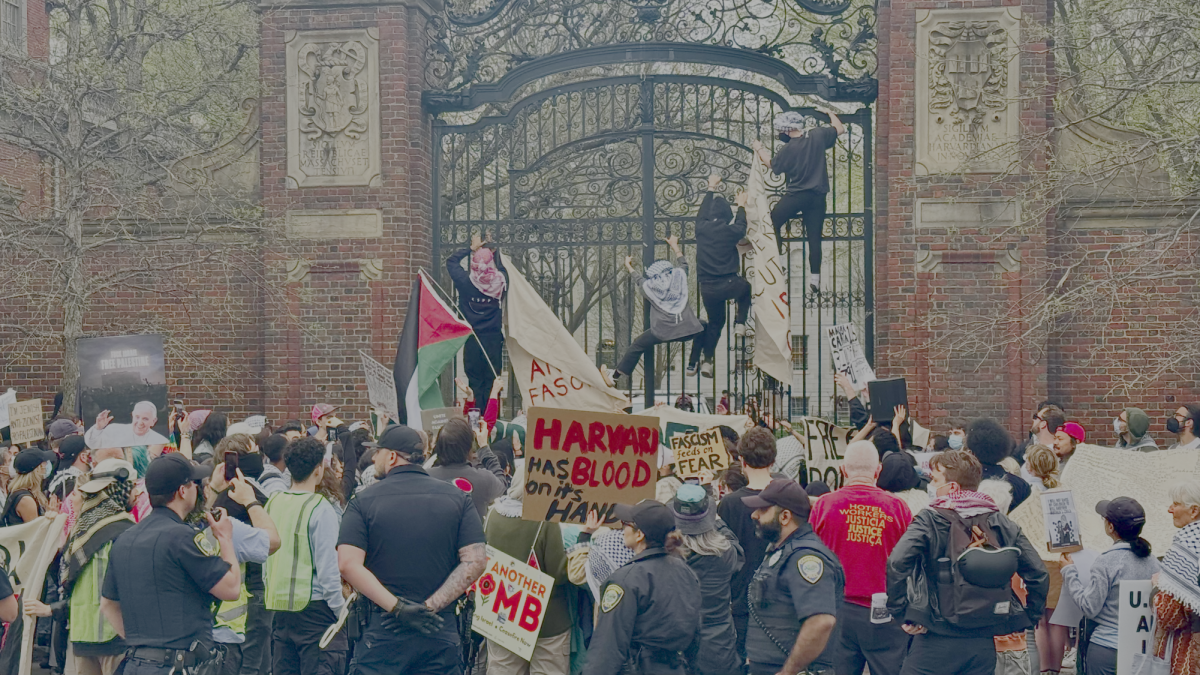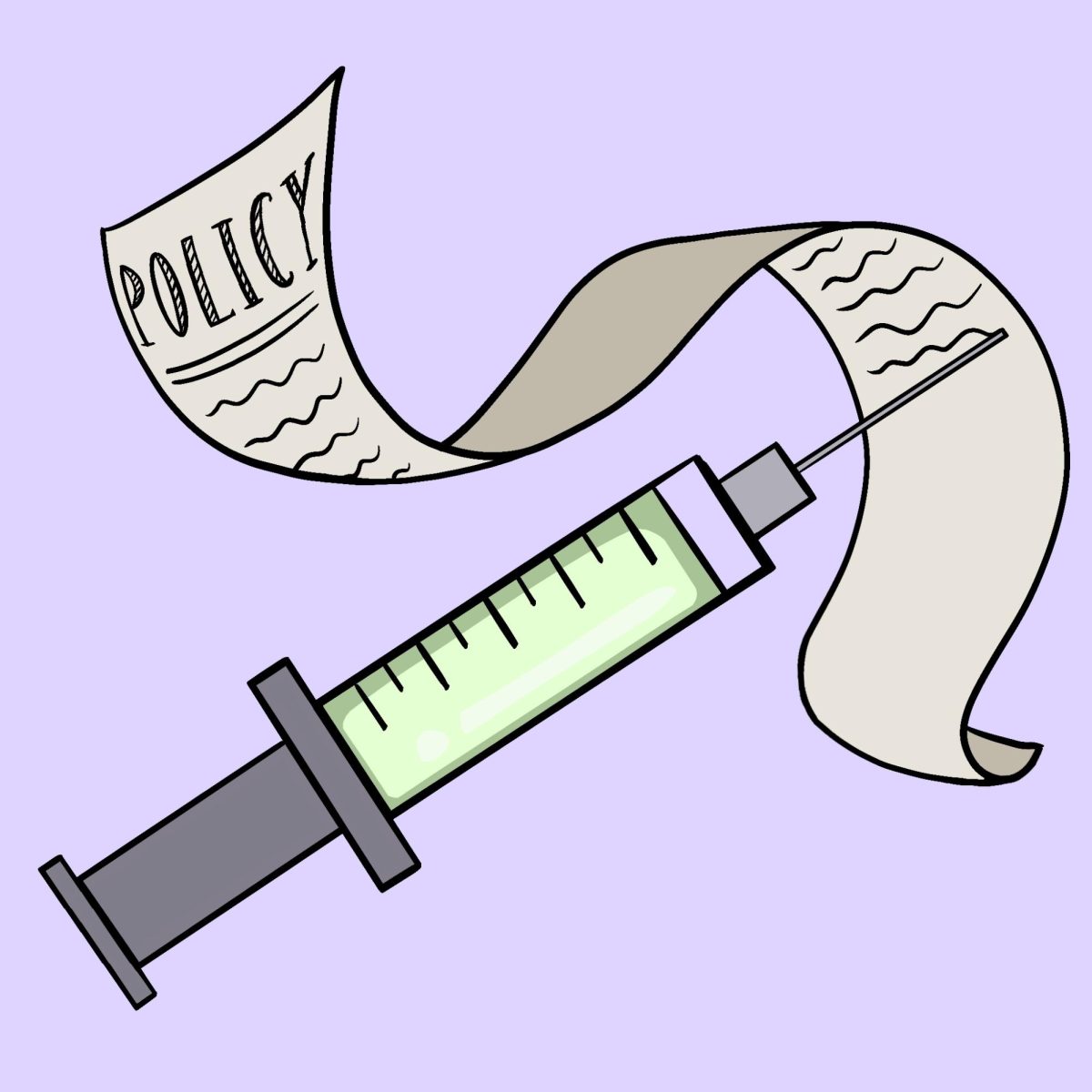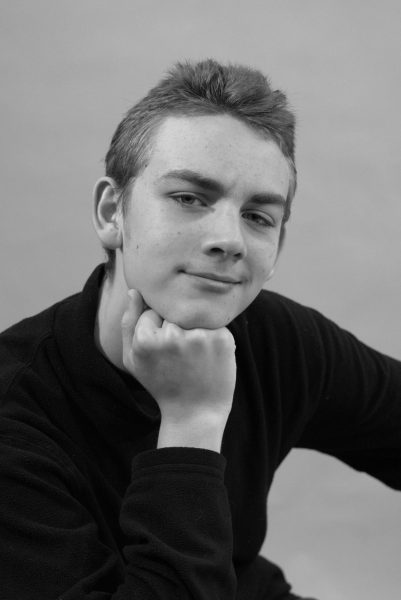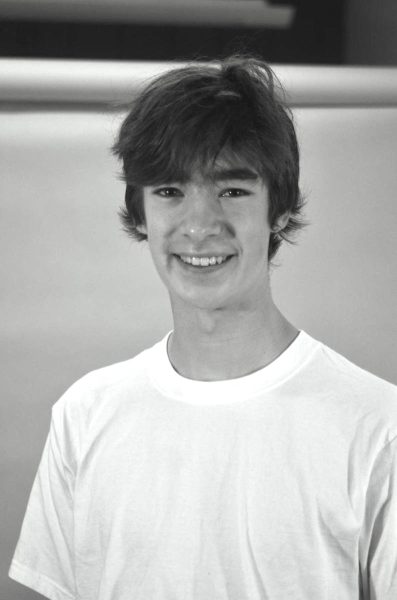If you were in Harvard Square on the evening of April 25th, you would’ve seen over 100 students and citizens donning keffiyehs and face masks, raising signs that read “Harvard has blood on its hands,” “Harvard divest now!” “Zionism needs fascism,” and “Stop funding Israel,” marching from Cambridge Common to the iconic Johnston Gate, with the protest concluding in front of the Harvard Kennedy School. The crowd’s chants ranged from “Harvard University, we know what side you’re on” to “intifada, intifada,” an Arabic term that translates to “rebellion” and has been associated with violent uprisings. The protest was organized by the Palestinian Youth Movement, and smaller Harvard organizations like Jews 4 Palestine and Harvard Out of Occupied Palestine (HOOP), as part of the “Global Day of Action for Gaza,” which saw protests in 25 cities globally. There was a strong police presence at the demonstration, and although the protesters at one point began climbing the Johnston gate to hang up signs, the police did not arrest or try to disband any of the participants. “It’s legal as long as no trespassing or defacement occurs,” a deputy officer told The Register Forum.
“We’re here to respond to the call from Gaza and to continue to stand up against the genocide, and in particular to stand in solidarity with the students,” said Lea Kayalia, a former student at Harvard Law School and a spokesperson for the demonstrators. “We broadly are demanding an arms embargo because we’ve seen that without an arms embargo, there would just be continual genocide…At the university level, we’re demanding that the universities disclose all of their investments in Israel and divest their investments in Israel and put them instead in things like Palestine studies,” Kayali told The Register Forum. She continued to explain how she felt the punishment of students who participated in campus-wide protests like last year’s encampment, was unjust. When asked whether students who committed crimes in the process of protesting should face consequences, Kayali explained that she didn’t “think people should be punished for standing up to genocide.”
But while the event drew large crowds of pro-Palestine demonstrators, a small and vocal group of counter-protesters was also around for the evening. A man with a ski mask and speakers played music in English, Hebrew, and Arabic, encouraging protesters to “give peace a chance.” After the march concluded, the counter protester played an audio recording questioning the students’ actions. “They did not protest when Hamas killed and tortured LGBTQ Palestinians. They did not protest when Hamas enacted violent oppression of women in Gaza. They did not protest when Hamas murdered their own Palestinian brothers who protested against it…when you chant ‘globalize the intifada,’ when you tweet death to Zionists… any reasonable judge or juror can only conclude that you are indeed endorsing terrorism.”
The Trump administration has recently moved to cut over two billion in funding for Harvard, saying that the institution has “failed to live up to both the intellectual and civil rights conditions that justify federal investment.” Harvard has taken a stand against the administration’s demands, saying it cannot “allow itself to be taken over by the federal government.” Now facing harsh criticism from both the left and the right, Harvard’s fate is uncertain. It could choose to heed the demands of protesters, the government, or take its own path entirely.















